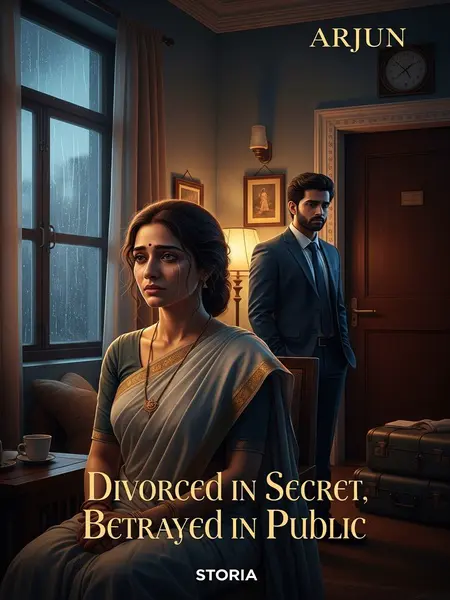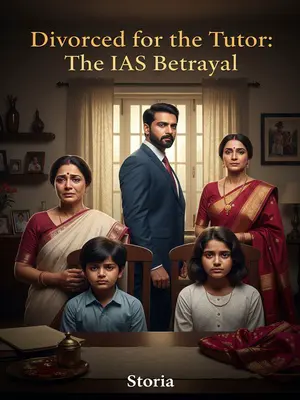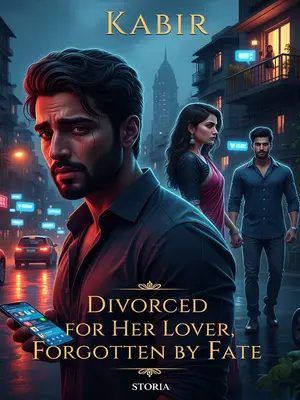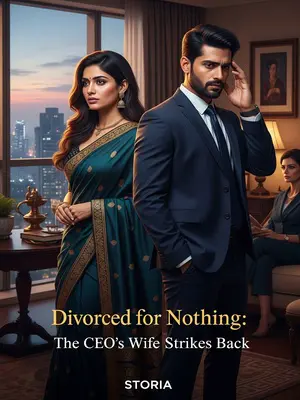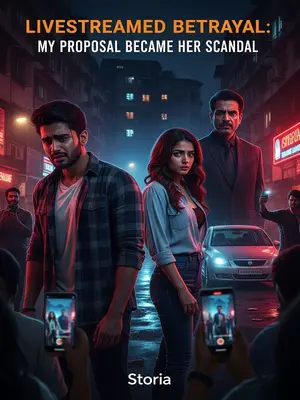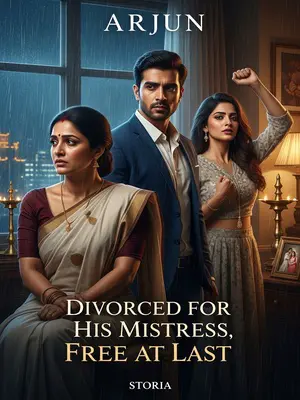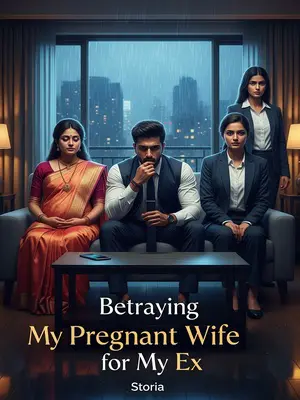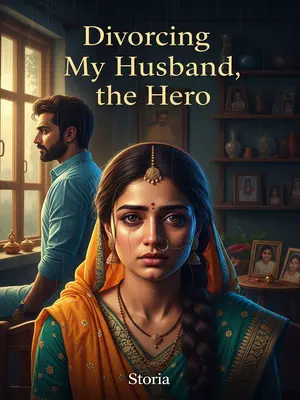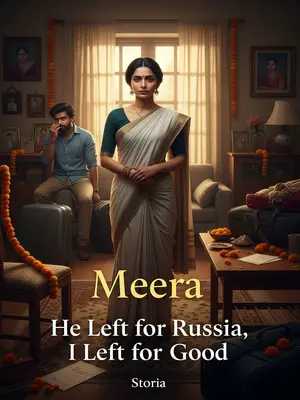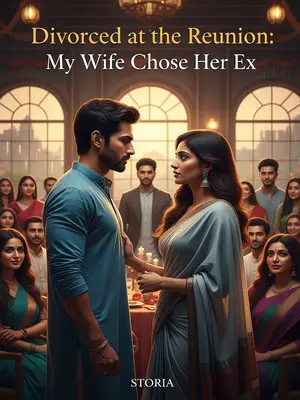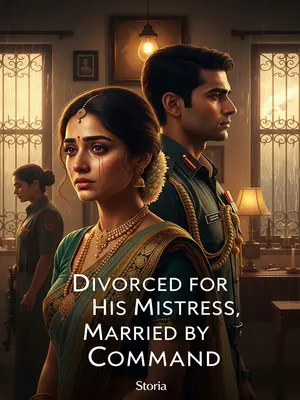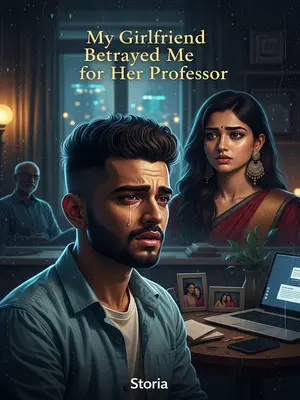Chapter 2: Hospital Truths
Arjun landed in the hospital after drinking too much.
The sharp smell of Dettol mixed with the spicy aroma of samosas from the hospital canteen drifted through the corridors as I rushed inside, clutching my purse. Mumbai’s monsoon had just begun; the hem of my salwar was soaked and clung to my ankles, streaked with muddy water from the street.
The nurse called out, “Who here is the patient’s family?”
Her voice was brisk, the kind that brooked no nonsense. The other relatives, perched on plastic chairs, glanced up with curiosity, chais cooling in their hands.
Neha and I stood up at the same time.
“Me.”
“It’s me.”
The moment our voices overlapped, a hush fell over the waiting area. For a heartbeat, the only sound was a metal spoon clinking against a glass. I caught an aunty on the next bench whispering to her companion, casting a sideways glance at us—two women, one man. Typical, the aunties would say, shaking their heads as if watching a TV serial come to life.
The nurse frowned. “So who is it, really?”
She looked at us with the impatience of someone who had seen too many family dramas. Her bindi was slightly off-centre, as if even it had grown weary.
Neha quickly stepped forward, voice quivering but urgent. “Just tell me, nurse, what I should do—please.”
Her voice trembled, but she pressed her palms together in a silent plea, clutching her dupatta like a shield. The nurse, satisfied, moved on after giving the overnight instructions. In the corridor, someone’s phone played an old Kishore Kumar song, drifting above the low hum of worry.
I turned to look at Arjun. His breathing was heavy, brows furrowed, the corners of his eyes red, lips pale and bloodless. I hadn’t seen him like this in years.
The sight of him, helpless on that narrow hospital bed, twisted something inside me. Memories of late nights, his head in my lap, came rushing back. But those days felt like another life.
You can build up alcohol tolerance, but a lot depends on your constitution. And Arjun happened to be allergic to alcohol.
Still, men like him would never admit it openly. In our circle, refusing a drink could mean admitting weakness. It’s absurd, but that’s how it is here.
Neha held back tears as she warmed his hands. Even as the original wife, I felt awkward seeing a mistress go this far.
She sat by his side, gently rubbing his cold fingers. The sincerity on her face was genuine, and for a brief moment, I felt like a guest at my own tragedy.
I hesitated, unsure if I should just leave, but then she spoke up.
Her voice broke the silence between us, words tumbling out like she’d been holding them back for ages.
“It’s all my fault. If it weren’t for me, he wouldn’t have drunk so much.”
She looked down, guilt plain on her face. The fluorescent lights flickered above, throwing shadows across her features. I almost felt sorry for her. Almost.
My assistant had already told me what happened before I arrived. At the dinner, someone tried to flirt with Neha and wanted her to drink, but Arjun stopped him. That person sneered, “A man who won’t even drink? You’d be better off with me.”
In every office party, there’s always one man who thinks he’s a hero. Here, a leering colleague, a few pegs down, pushing his luck. When Arjun intervened, I’m sure half the office was watching.
Arjun was long past the age of acting on impulse. But that night, something got to him and he started drinking competitively.
Perhaps it was ego, perhaps just tiredness. But when a man is challenged in front of his colleagues—especially in India, where respect is currency—he’ll do stupid things. As he raised that glass, I saw a flash of the old Arjun: back in college, in the canteen, refusing a drink from the seniors, only to be mocked mercilessly—his face burning as everyone laughed. That old wound still shaped him, even now.
Everyone who knows Arjun knows—he can’t handle his liquor. But if he decides to drink as if his life depends on it, you might not be able to outdrink him.
He’s stubborn, that one. And pride can be a dangerous thing. The family doctor had warned him countless times, but men like Arjun never listen.
When he was younger and more reckless, he landed in the hospital several times because of this. The last time was in our second year of marriage. He vomited blood in the hospital, and I got into a car accident on the highway. After that, he changed.
I remember those frantic calls, his mother’s tears, the nurse telling me to be strong. It was a miracle we both survived that year. After that, he promised—never again. But promises fade, just like old wedding cards tucked away in almirahs.
Neha asked, “Ms. Meera, was he always this protective of you before?”
Her question stung, though she didn’t mean it to. Old memories flickered—Arjun shielding me from my mother’s anger, standing between me and the world.
I pressed my palms together and gave a small, noncommittal nod. “You stay and watch over him. I’ll head home.”
It was easier to leave. There are times when dignity is the only thing you have left, and you must clutch it like a lifeline.
“Ms. Meera—” Neha’s voice was urgent. She bit her lip, as if making up her mind. “I told Arjun I want to get married. He agreed.”
I paused, feeling a strange emptiness. The finality of her words settled over me, like dust on old books.
As I walked out, I stopped at the chai stall outside the hospital gates. My hands trembled as I fumbled for coins, the air thick with the scent of ginger and cardamom. Two ward boys stood nearby, gossiping in low voices—‘Those madam-log from the office, drama every day, yaar.’ Their laughter cut through me, sharper than the monsoon wind.
